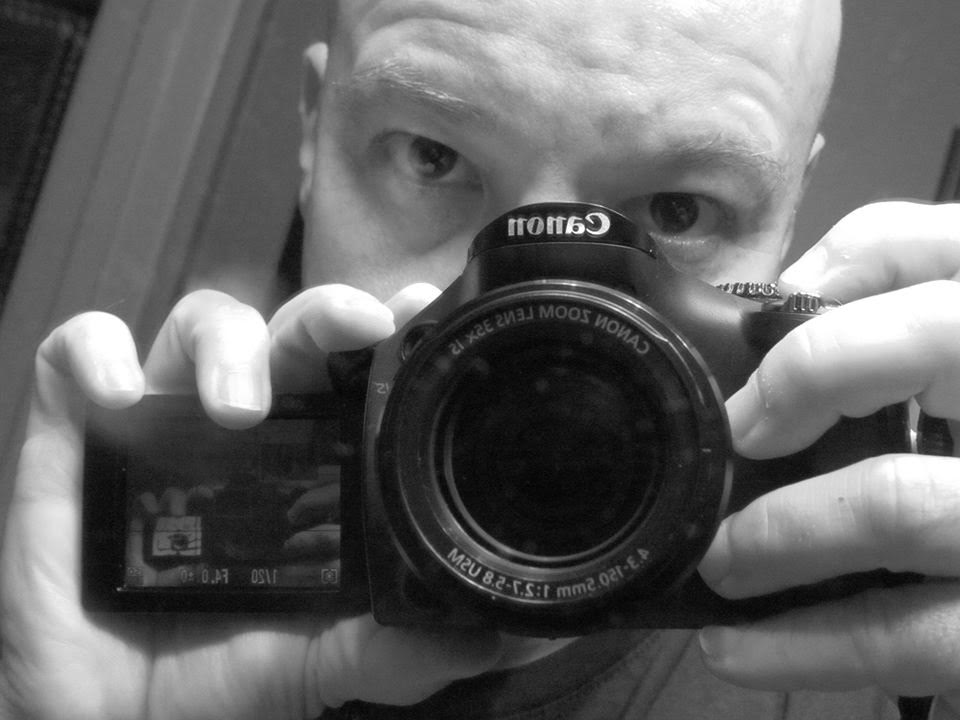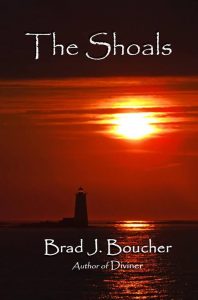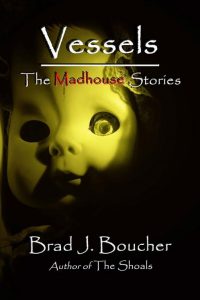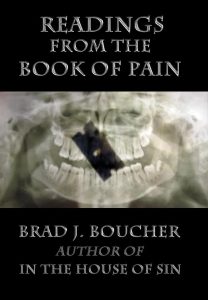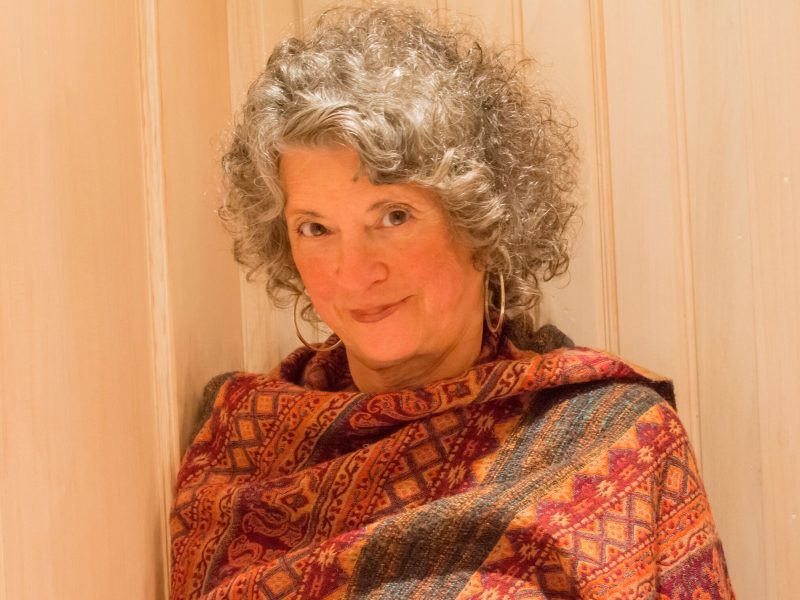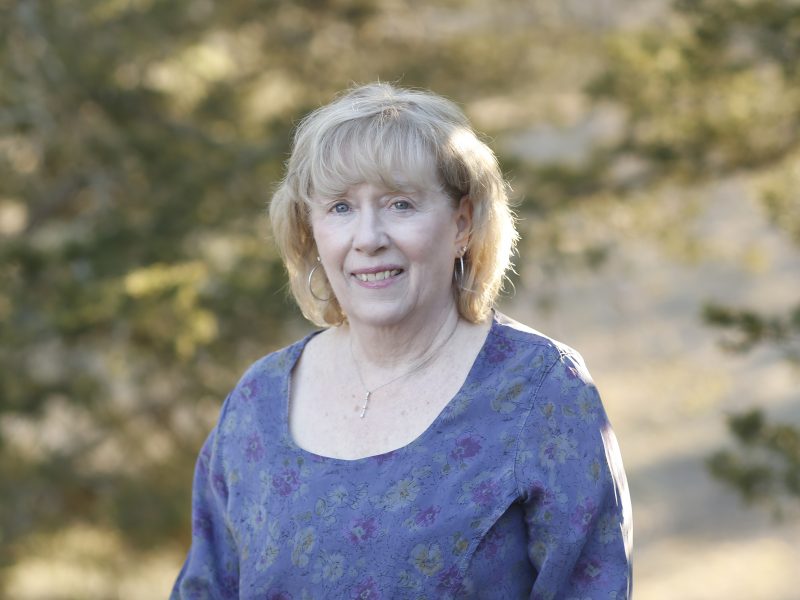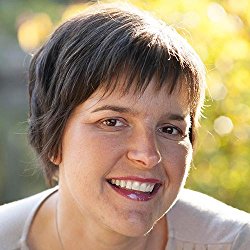Brad J. Boucher is a local Hampton author with several published books of horror and the noir under his belt. His collection of work is available on Amazon and other booksellers.
Tell me a little bit about who you are and where you live.
My name is Brad Boucher and I’ve lived in Hampton for sixteen years now, and I still love the area. I hate the winters and every year I complain about them, but I love New England so much that I can’t imagine moving away from it for very long. Maybe I just need to take more vacations, but the cold weather provides more time for me to sit down and write. I’ve been writing since I was just a kid; I guess even then I had the urge to do it, and I’ve kept at it through all these years. But I’ve always been pulled toward dark and creepy fiction, which is not exactly everyone’s cup of tea.
Are there any favorite local spots you like to visit, ones that inspire your creativity?
I’ve visited the Isles of Shoals a few times and I absolutely love it out there, and that’s definitely been inspirational. One of my books, (The Shoals, obviously) takes place in the Hampton area in its first half, and then the rest of the book is set out on White Island. As far as other local places, I can walk the beaches for hours; it always clears my head and lets me focus on a story problem or a character that’s giving me trouble. And this is going to sound a little strange, but I can spend a lot of time in some of the darker areas of the seacoast; if I’m driving along and I see a collapsed barn or a patch of dead trees, I have to pull over and get my camera out. Some of those shots end up as my book covers later on.
Wow us with shock value. Is there anything about you that would surprise readers?
This will probably surprise some people out there, especially coming from a horror writer, but these days, I honestly don’t read a lot of horror fiction. I still read what my favorites are putting out; Stephen King and Graham Masterton always make my reading list. But I’ve been reading a lot of edgy, kind of subversive stuff lately, like Charles Bukowski and Chuck Palahniuk. And I tend to read books that have a flavor of what I’m working on at the time. If I’m writing a story that takes place in the Boston underworld, for example, I’ll read George Higgins or Dennis Lehane, and if I’m writing something with a lot more dialogue than action, I almost always reach for an Elmore Leonard book. Nobody wrote more dead-on accurate dialogue than Elmore. Reading in the realm of what I’m writing at any given time has really been helpful in keeping me in the voice of each new story.
What interested you to become a writer rather than something else such as neurosurgeon?
I think my love of horror came first. I was one of those kids who’d spend Saturday afternoons glued to the TV watching Creature Double Feature. It didn’t matter what they were showing, or how many times I’d already seen it, if it had monsters or ghosts in it, then I was good to go. I watched all those old Godzilla movies, all the Universal Monsters and Hammer flicks, I loved all of it. And I was also already heavily into reading. I’d get those Scholastic Books catalogues at school and order everything I could, and back then, a lot of what you’d see would be collections by Ray Bradbury and those books of “Scary Stories to Read at Midnight” and that kind of thing. And once I started on those, I realized that, hey, wait a minute, people can write scary things the same way they put them in movies? So I think the combination of those two things got me started, and once I sat down to write my first story (I was only 9 or 10, and I’d just seen JAWS at the movies, so you can imagine what that story was about), I kind of never looked back. It’s something I’ve always wanted to do, ever since that first terrible, horrible, badly-written JAWS rip-off.
If you could spend a day with any author, living or dead – who would it be and why?
Me. I’m told I’m very interesting and I want to find out if that’s true. No, I’m kidding. This is a tough one, but I think it would be really cool to go out bar-hopping with Edgar Allan Poe. He was one of the starting points for horror fiction. I would love to find out what made him tick, and think the way he did. So much of his work talks about insanity and madness that you have to wonder how much of that was autobiographical, or was that just how he saw the world. You can look around and see darkness anywhere you want, there’s so much of it out there, but when I read Poe, I start wondering if that’s all he saw, anywhere he looked. So, yeah, I’d love to have a couple of cold beers with Mr. Poe and get his take on things.
Does the area in which you live provide influence in your writing? How so?
I’m definitely influenced by the area. My book The Shoals exists because I used to drive the coast road every day from Hampton to Portsmouth every single day to go to work and I’d see the islands out there every morning, and I’d see that lighthouse, and it seemed to be begging me to write about it. In a good horror story, it helps to have a strong location, especially if it’s isolated and lonely, and so that felt like the perfect setting for me. Other things about the area influence me, too, not just a particular place or part of the coast. I think most New Englanders have a certain way about them; we’re a little stubborn and maybe we’re a little set in our ways, and I’ll hear things said by a local in line at the grocery store or out walking the sea wall in Hampton that could only be said by a long-time New Englander. It always makes me want to go home and start a new story that includes my version of that man or that woman that I overheard.
What is the most critical piece of advice you would give to new authors?
There are so many good answers to this question that feel cliché now because so many writers have said them again and again. But they say them for a good reason, and that’s because they’re true. The first thing is to write, and write, and keep writing. It’s okay to think about your project, and it’s great to talk about your project, but sooner or later, hey, sit down and write your project. Do the work. Yeah, it’s going to be hard at time, but it’s supposed to be. Don’t be afraid of it. Another good bit I’ve heard is that reading a ton of written work is important too, and I agree with that. Don’t just read as a reader, but as a writer as well. Look at a book or a story and think how you would have done it, what you would have included or left out or changed. It’s a good habit to get into, believe me. The one piece of advice that I don’t hear very often but that I stand by is that you should really be very hard on your earlier work. Personally, I like to look at things I’ve written ten years ago and see the things I did wrong. And as much as I love the work I’m doing now, I hope in another ten years I’ll see the holes in it and the mistakes I made in the storytelling or the characterization. Because that’ll mean I’m always evolving, and getting a little better at what I do.
Coming up with a title can be difficult. Tell me how you came up with yours.
I’m bombarded with titles and story ideas constantly, and I jot down as many of them as I get a chance to, just in case I ever get to them. But the right title for the right project is important. Most times I have a title in mind for any given story right from the very beginning of it, but every once in a while, a certain phrase or theme will come out during the writing that seems to fit perfectly and I make myself shift gears on it. The title The Shoals is maybe a bit too obvious, but I still like it. Because if a reader is from the area, he or she instantly has a sense of place, whereas if they’re not from around here, the title has a kind of ominous sound to it. Is the shoals a place, is it a mysterious cult, what is it? I also have a novel called 11:11, and I think that’s the one that pulls in the most readers based just on the curiosity factor. What kind of book is called 11:11? What could that possibly be about? Years ago, an agent suggested a title change, and the title he proposed was very succinct and relatable, but it also gave away a major plot twist. It took away most of the mystery behind the title, and I think that would have been a big mistake. So I’ve stuck with 11:11 all this time, and I think I made the right decision.
Are there more books coming from you in the future? Do tell!
There are. There are definitely more books on the way. Right now I’m doing a final rewrite on a book called Vices, which is made up of six novellas that all become entwined as the book moves forward. The idea is that each story can stand on its own, but as they cross paths here and there, a bigger picture starts to take shape, and it will offer a richer reading experience once everything falls into place. I did a similar project last year, called Vessels, and I enjoyed it so much I had to try it again. And yes, I did manage to tie the two books in together in a very subtle way, because I love those sort of Easter Egg connections, but you don’t have to have read Vessels to enjoy Vices. I’m also finally jumping head first into a project that I’ve been putting off called Surfacing. Some of my horror work actually has very little horror in it, but Surfacing (which starts out in Portsmouth, by the way) will be my first non-genre novel. I’m pretty excited about finally giving it the time it deserves to come together and that’s my major project for this year. On the back-burner there’s another horror novel nagging at me called Blood & Ashes. So much writing, so little time.
Where can people find more information on you and your projects?
People are welcomed with open arms at my website, www.bradjboucher.com, and I also have a Facebook page, Brad J. Boucher – A Writer’s Madhouse, which I update several times a day, and where I offer free fiction, writing tips and daily genre trivia. And I try to speak at local libraries and book fairs as often as I can. I’m a real writing geek and I can talk about the process and answer questions about inspiration and characters for hours, or until someone tells me to shut up already. As you could probably tell from the length of some of these answers.
